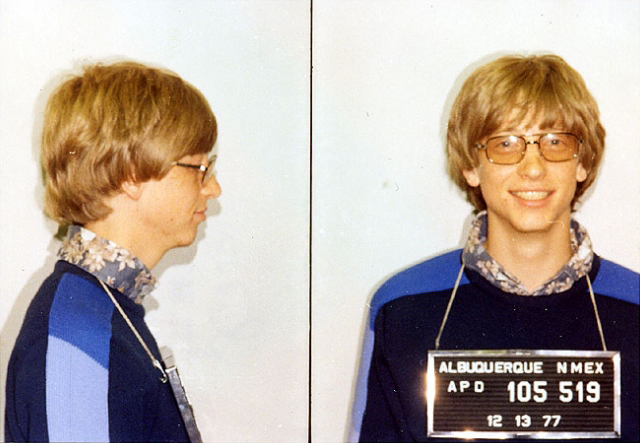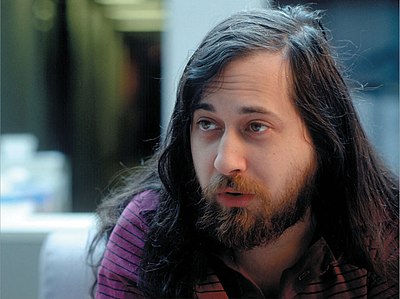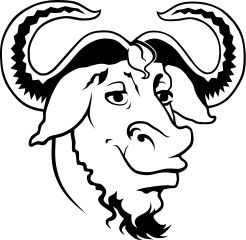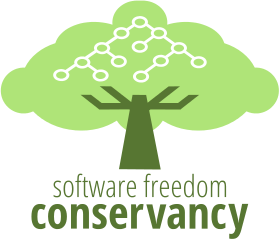SHARE User Group
Almost all IBM mainframe software was also distributed with source code included. User groups were formed to facilitate the exchange of software. The SHARE user group was formed in Santa Monica, and members exchanged source code on magnetic tape via post. The group released the SHARE operating system (SOS) — one of the first instances of collaborative software development.

CONTU
Software was not considered copyrightable before the 1974 US Commission on New Technological Uses of Copyrighted Works (CONTU) decided that "computer programs, to the extent that they embody an author's original creation, are proper subject matter of copyright". Therefore, software had no licenses attached and was shared as public-domain software, typically with source code. The CONTU decision plus later court decisions such as Apple v. Franklin in 1983 for object code, gave computer programs the copyright status of literary works and started the licensing of software.
Open Letter to Hobbyists
In 1976 Bill Gates wrote an essay entitled "Open Letter to Hobbyists", in which he expressed dismay at the widespread sharing of Microsoft's product Altair BASIC by hobbyists without paying its licensing fee.

GNU
A general trend began to no longer distribute source code, and only distribute the executable machine code that was compiled from the source code. One person especially distressed by this new practice was Richard Stallman, at the time a programmer at the MIT Artificial Intelligence Laboratory. He was concerned that he could no longer study or further modify programs initially written by others. Stallman viewed this practice as ethically wrong.
In 1983, Richard Stallman, said he would create a free alternative to the Unix operating system. Stallman dubbed his alternative GNU, a recursive acronym for "GNU's Not Unix."

Free Software Foundation
Richard Stallman established a non-profit organization, the Free Software Foundation, in 1985, to more formally organize the project. Stallman also published the GNU Manifesto in 1985 to outline the GNU Project's purpose and explain the importance of free software. He invented copyleft, a legal mechanism to preserve the "free" status of a work subject to copyright, and implemented this in the GNU General Public License. Copyleft licenses allow authors to grant a number of rights to users (including rights to use a work without further charges, and rights to obtain, study and modify the program's complete corresponding source code) but requires derivatives to remain under the same license or one without any additional restrictions. Since derivatives include combinations with other original programs, downstream authors are prevented from turning the initial work into proprietary software, and invited to contribute to the copyleft commons.
Free Software Definition
The Free Software Definition was originally published in February 1986. The modern definition defines free software by whether or not the recipient has the following four freedoms:
- The freedom to run the program as you wish, for any purpose (freedom 0).
- The freedom to study how the program works, and change it so it does your computing as you wish (freedom 1). Access to the source code is a precondition for this.
- The freedom to redistribute copies so you can help your neighbor (freedom 2).
- The freedom to distribute copies of your modified versions to others (freedom 3). By doing this you can give the whole community a chance to benefit from your changes. Access to the source code is a precondition for this.
GNU General Public License
The GNU General Public License was written by Richard Stallman in 1989, for use with programs released as part of the GNU project. The original GPL was based on a unification of similar licenses used for early versions of GNU Emacs (1985), the GNU Debugger, and the GNU C Compiler. These licenses contained similar provisions to the modern GPL, but were specific to each program, rendering them incompatible, despite being the same license. Stallman's goal was to produce one license that could be used for any project, thus making it possible for many projects to share code.

Software in the Public Interest
Software in the Public Interest, a non-profit organization, is formed to serve as a fiscal host for the Debian Project. It was founded by Bruce Perens.
GNU Mailman
GNU Mailman is a computer software application from the GNU Project for managing electronic mailing lists. Mailman is coded primarily in Python. A very early version of Mailman was written by John Viega while a graduate student, who then lost his copy of the source in a hard drive crash sometime around 1998. Ken Manheimer at CNRI, who was looking for a replacement for Majordomo, then took over development. When Manheimer left CNRI, Barry Warsaw took over. Mailman 3, the first major new version in over a decade, was released in April 2015 and is currently maintained by Abhilash Raj.
Software Freedom Conservancy
The Software Freedom Conservancy was established in 2006, with the backing of the Software Freedom Law Center. The Conservancy hosts several open source projects, including Git, Inkscape, and OpenWrt.

GPLv3
In response to legal issues with patents and the DMCA, the Free Software Foundation released version 3 of its GNU Public License in 2007 that explicitly addressed the DMCA's digital rights management (DRM) provisions and patent rights. GPLv3 was written by Richard Stallman, with legal counsel from Eben Moglen and Richard Fontana from the Software Freedom Law Center.
